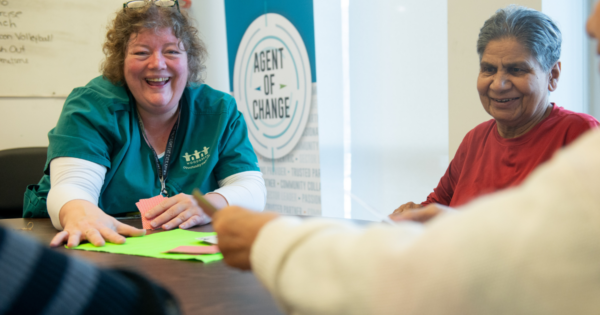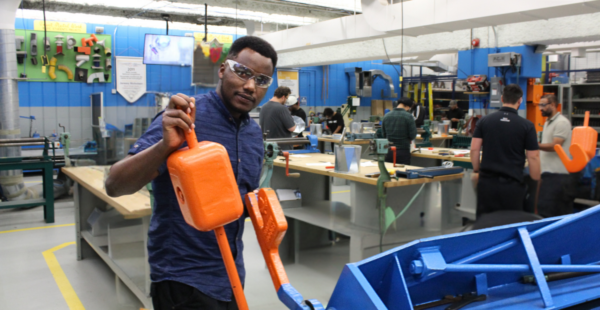WoodGreen’s Homeward Bound program is a four-year program designed to help inadequately housed or homeless mother-led families earn college diplomas and achieve economic and personal self-sufficiency. Since its inception in 2004, it has impacted around 400 participants, each with 1.5 children on average, meaning that the program impacts 50% more children than it does mothers!
Knowing how many children the program impacts, WoodGreen’s latest study measures the impact of the Homeward Bound program on the children of the participants. Through four channels of data, we verified and lifted our understanding of the program’s impact on the children. The diverse set of mothers and children part of the study shared how they feel impacted. Combined with better impact measurement processes for the kids, we can comprehend the more profound, more prolonged, and inter-generational effects of Homeward Bound Toronto. Below is an overview of the results from the study, and you can now read the full report here.
Results 1: Relationships between mother and child’s wellbeing
Throughout this study, it became evident that it was difficult to separate the program’s impact on the children from its effects on the mothers. This interconnectedness was more than a theme; it is a descriptor of the symbiotic relationship between mother and child’s wellbeing that feeds back into itself.

Results 2: Domains of Impact
Subjective Wellbeing: When asked to describe the impact on their wellbeing, program participants and their children talked mainly about the idea of independence. Homeward Bound allows mothers to parent on their terms and children to have the space to be themselves, ultimately leading to better self-reported wellbeing.
Relationships: Participants reported that the relationships between mothers and their children could continue to flourish and be strong during the program. Additionally, while positive relationships with other participants positively impacted families, negative relationships could also negatively impact families.
Education/Daycare: Participation in Homeward Bound sometimes means that children would switch schools and/or daycares which had educationally stabilizing effects since they remain at the same school/daycare for four years. The program also provides educational and behavioural supports, like a tutoring program and childcares’ resource counsellor, that help many children improve their grades, learning skills, attendance, and behaviours.
Health: Homeward Bound’s nutrition and mental health supports helped maintain or improve the participants’ overall health and their kids. The independence and freedom that come with the family’s own space and kitchens also contribute to healthier physical and mental states.
Stability: In terms of financial stability, moms felt the same or better off during the program, naming the financial education supports as especially helpful. And for stability in general, the interviewees said the program’s four-year, supportive environment allows them to pause frequent moving, sky-high rents, and difficult living situations and relationships. All this allows for a bit of a break from the real world so that they can “feel sane” again.
Results 3: Identified areas of action
This report began a deeper conversation about Homeward Bound’s impact on the participants’ children. With learnings about the program as a whole, the report has identified these areas of action that WoodGreen has already or is in are in the process of completing:
-
- Indoctrinating a pre-and post-program survey on child wellbeing
- Creating a better grade and attendance data collection system
- Thoroughly reviewing all additional program feedback and suggestions with the Homeward Bound team to continuously improve all aspects of the program
While it’s been clear to participants and program staff the impact Homeward Bound has on the children of participants, this study organizes, analyzes, and formalizes this knowledge, giving us more data and insights into the true benefits and impacts of the program.





